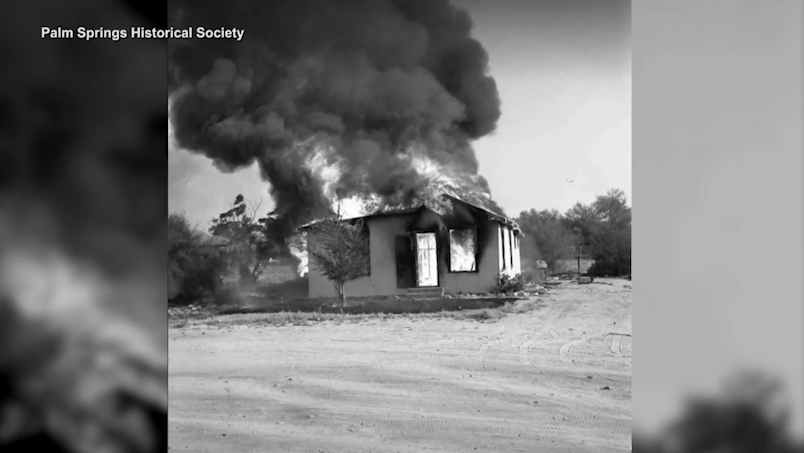Watch: Racial reparations claim against city of Palm Springs filed by Section 14 families
A group of over 500 survivors and descendants of what was known as the destruction of Section 14 is seeking reparations from the City of Palm Springs.
The group is looking to receive direct payments from the city for what their reparations claim states is millions of dollars of racially motivated harm caused by the evictions in the 1960s.
According to a preliminary harm assessment, it determined the city's actions amount to $400 million to $2 billion dollars.
Section 14 was the primary residential area for people of color, with the one-square-mile neighborhood owned by the Agua Caliente Band of Cahuilla Indians from 1930 to 1965. The evictions began in late 1954 and continued for 12 years through 1966.
It happened after long-term land leases were legalized on Indian land and property values soared.
The demolition of Section 14 was described in a later California Department of Justice report as "a city-engineered holocaust."

“There were some people who went to school in the morning and when they came home their houses were gone,” Palm Springs Historical Society’s associate curator, Renee Brown told News Channel 3 back in June 2020.
Ahead of the news conference, Palm Springs Mayor Lisa Middleton issued a statement reading in part:
“The City of Palm Springs is deeply sorry about the action taken toward those affected by the Section 14 displacement in the 1950s and 60s. Over the past two years, the City Council and Staff have set out on a course aimed at making right what happened during that period. While this process may seem to be taking longer than some might like, the City has an obligation, not only to those who were displaced, but also to its residents, businesses and taxpayers, to thoroughly investigate the history as it develops remedial programs that are fair to everyone.
...The City of Palm Springs prides itself on being one of the most inclusive and welcoming communities in the nation. We are committed to equity, social justice and doing what is right on behalf of our citizens.”
Palm Springs Mayor Lisa Middleton
The full statement included a timeline of steps the City has taken. You can see it below.
In addition to the statement, the City of Palm Springs provided the claim forms below.
The city of Palm Springs formally apologized in September 2021 for the evictions, and the City Council asked its staff to develop proposals for possible economic investments that could act as reparations, but the survivors of Section 14 say conversations have stalled.
Related Story: Section 14 families file racial reparations claim against Palm Springs
In a statement to News Channel 3 earlier this month, Palm Springs City Attorney Jeff Ballinger said he hopes to continue focusing the city's resources on making amends, rather than on unnecessary litigation.
"...this City Council has issued a formal apology and has set the City on a course to attempt to make amends for what happened back in the 1950’s and 1960’s. I have been in communication with Ms. Martin, and it is my hope that, with her assistance, we can continue focusing the City’s resources on that course of action, rather than on unnecessary litigation."
Jeff Ballinger, Palm Springs City Attorney

